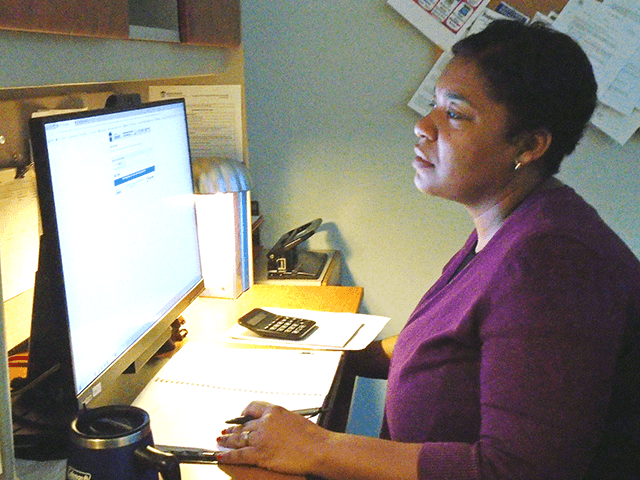
What is the current situation of workers and their families? What are their needs? How can they best be addressed?
These questions are being raised throughout the political campaign. They are important questions, but they are not only political questions. The issues of work and workers are basic human issues. Of spiritual concern. With ecological ramifications.
In Laudato Sí, Pope Francis speaks to these questions.
We were created with a vocation to work. The goal should not be that technological progress increasingly replace human work, for this would be detrimental to humanity. Work is a necessity, part of the meaning of life on this earth, a path to growth, human development and personal fulfillment. Helping the poor financially must always be a provisional solution in the face of pressing needs. The broader objective should always be to allow them a dignified life through work. LS #128
Reflecting on Genesis 2 Francis writes: Any approach to an integral ecology, which by definition does not exclude human beings, needs to take account of the value of labor….According to the biblical account of creation, God placed man and woman in the garden [God] had created (cf. Gen 2-15) not only to preserve it (“keep”) but also to make it fruitful (“till”). Laborers and crafters thus “maintain the fabric of the world” (Sir 38:34). Developing the created world in a prudent way is the best way of caring for it, as this means that we ourselves become the instruments used by God to bring out the potential which [God] inscribed in things. LS #124
We who have been drawn in some way to the Benedictine tradition nod in recognition at the insights offered in #126: We can also look to the great tradition of monasticism….Later, Saint Benedict of Norcia proposed that his monks live in a community, combining prayer and spiritual reading with manual labor (ora et labora). Seeing manual labor as spiritually meaningful proved revolutionary. Personal growth and sanctification came to be sought in the interplay of recollection and work. This way of experiencing work makes us more protective and respectful of the environment; it imbues our relationship to the world with a healthy sobriety.
These paragraphs invite us to examine our own attitudes toward work and workers and our own work ethic. They encourage us to consider the implications of these ideas for diverse situations.
Thoughts to consider:
- In Laudato Sí work is a setting for rich personal growth. Many aspects of life enter into play: creativity, planning for the future, developing our talents, living out our values, relating to others, giving glory to God. (from CatholicEcology.net)
- Work can be our laboratory where we encounter God’s creation, serve others, and cultivate our relationship with God. (from Holy Cross Abbey, Berryville, VA)
- “To get the right view of work, we have to get the right view of humanity. Instead of valuing certain types of work above others, we should think that each is being done by a human being, created and loved by God.” — Laurence McTaggert, OSB, in Wisdom From the Monastery, The Rule of Benedict for Everyday Life, p. 116
“….the problem is not with work itself but the way we regard it.” p. 117 - “Pope Francis [gives] the principled reminder that ‘underlying every form of work is a concept of the relationship which we can and must have with what is other than ourselves.’” —from A Commentary on Laudato Sí by Kevin W. Irwin, p. 172)
We all are created with a vocation to work. Let’s ponder the meaning of that every day, as a “Labor Day” to celebrate.
Suggestions for action:
- Reflect on your own work. Are you living out your values – giving glory to God?
- Be attentive to how you treat service providers with whom you interact, especially those whose jobs are dangerous, tedious, or unnoticed.
